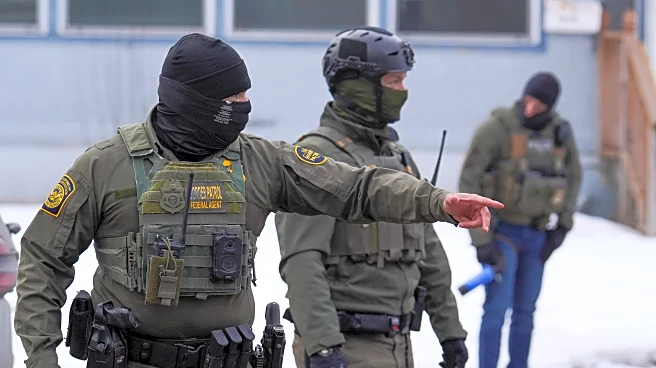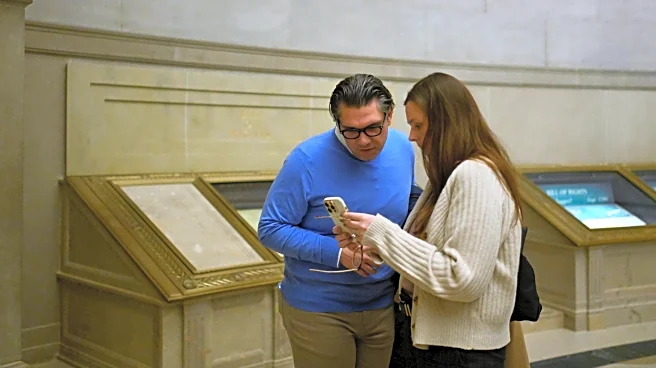What's Happening?
Pop star Olivia Rodrigo has publicly condemned the Department of Homeland Security (DHS) for using her song 'All-American Bitch' in a video produced by Immigration and Customs Enforcement (ICE) that urged migrants to 'self-deport.' Rodrigo criticized
the agency for promoting what she described as racist propaganda. The video, which featured her 2023 track, has since had the music removed following her objections. A DHS spokesperson responded by suggesting Rodrigo should thank law enforcement officers for their service, rather than belittle their efforts. This incident has sparked a debate over the use of pop culture in government messaging.
Why It's Important?
The controversy surrounding the use of Olivia Rodrigo's music by DHS highlights the intersection of pop culture and political messaging. It raises questions about the ethical implications of using artistic works in government propaganda, particularly in the context of sensitive issues like immigration. Rodrigo's response reflects broader concerns about the portrayal of immigrants and the role of artists in political discourse. The incident underscores the power of celebrity influence in shaping public opinion and the potential for artists to impact policy debates. It also illustrates the challenges government agencies face in navigating cultural sensitivities while promoting their agendas.
What's Next?
The clash between Olivia Rodrigo and DHS is likely to continue, with potential implications for future collaborations between artists and government entities. The incident may prompt discussions about the rights of artists to control the use of their work and the responsibilities of government agencies in respecting those rights. Stakeholders, including legal experts and advocacy groups, may explore avenues for addressing unauthorized use of artistic content in political messaging. The situation could lead to increased scrutiny of government communication strategies and calls for more transparent and respectful engagement with cultural figures.
Beyond the Headlines
The use of Olivia Rodrigo's music by DHS highlights broader issues related to the appropriation of cultural works in political contexts. It raises ethical questions about the boundaries of artistic expression and the potential for government entities to exploit popular culture for propaganda purposes. The incident underscores the need for a nuanced understanding of the role of art in society and its impact on public perception. Long-term implications may include shifts in how artists engage with political issues and increased advocacy for protecting creative rights in the face of governmental use.
















